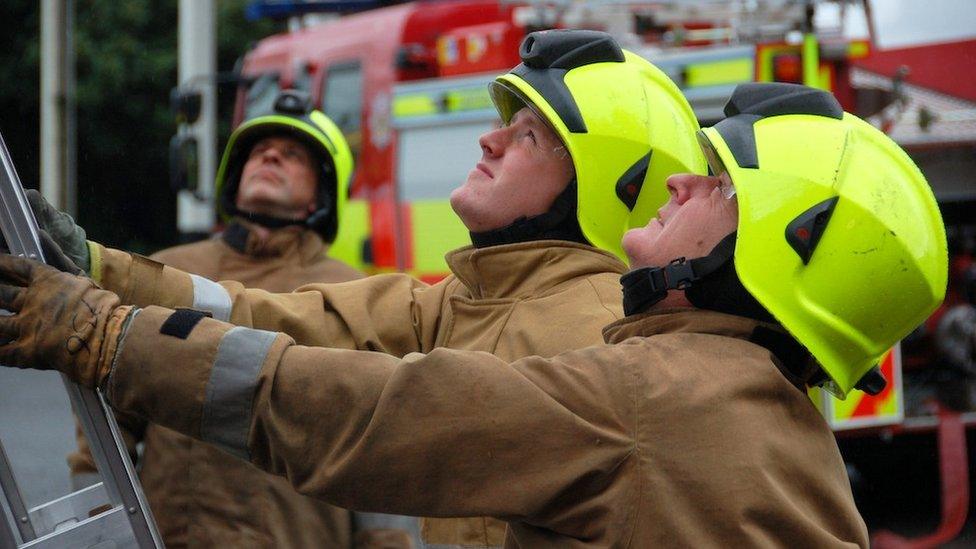Concern as firefighters no longer go to all automatic alarms
- Published
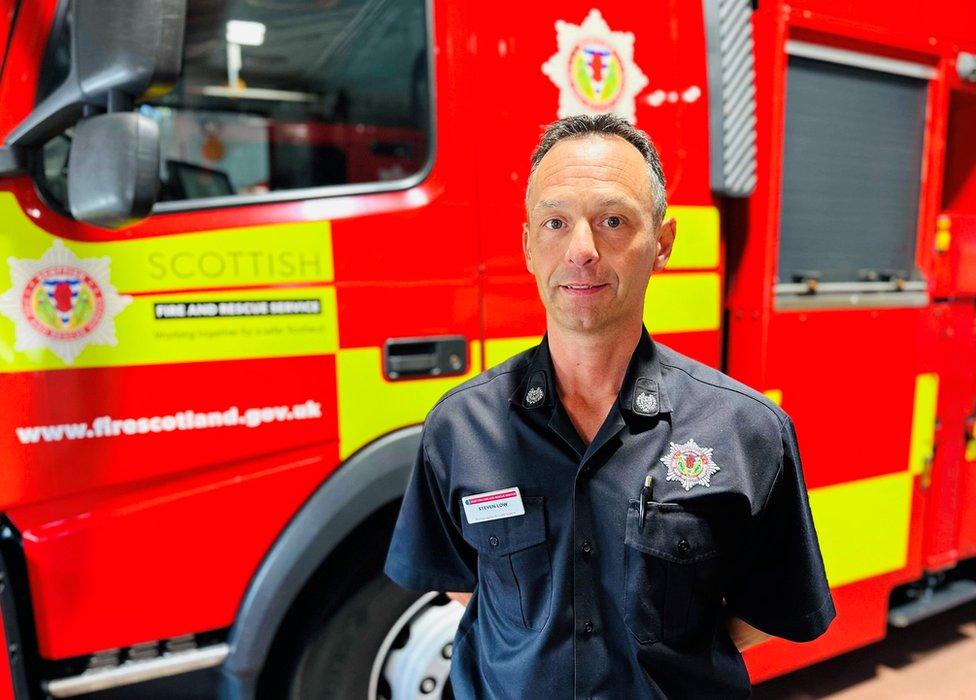
Stephen Low of the Scottish Fire and Rescue Service says there are "big changes"
Concerns have been raised over a move by the fire service to stop responding to all automatic alarms in a bid to cut unnecessary callouts.
From Saturday, the Scottish Fire and Rescue Service's new policy is to establish if the alarm has been triggered by an actual fire.
Crews will not attend premises such as schools, offices and places of worship unless a fire is confirmed.
Hospitals, care homes and places where someone could be asleep are exempt.
Some organisations such as the Church of Scotland have expressed concern at people having to check for fire.
Responding to alarm calls set off in buildings makes up a large proportion of call-outs for firefighters.
Last year firefighters in Scotland attended more than 30,000 false alarms - an average of about 80 per day.
The new approach aims to reduce unnecessary call-outs, save money and free up training time.
SFRS group commander Steven Low said they were "big changes".
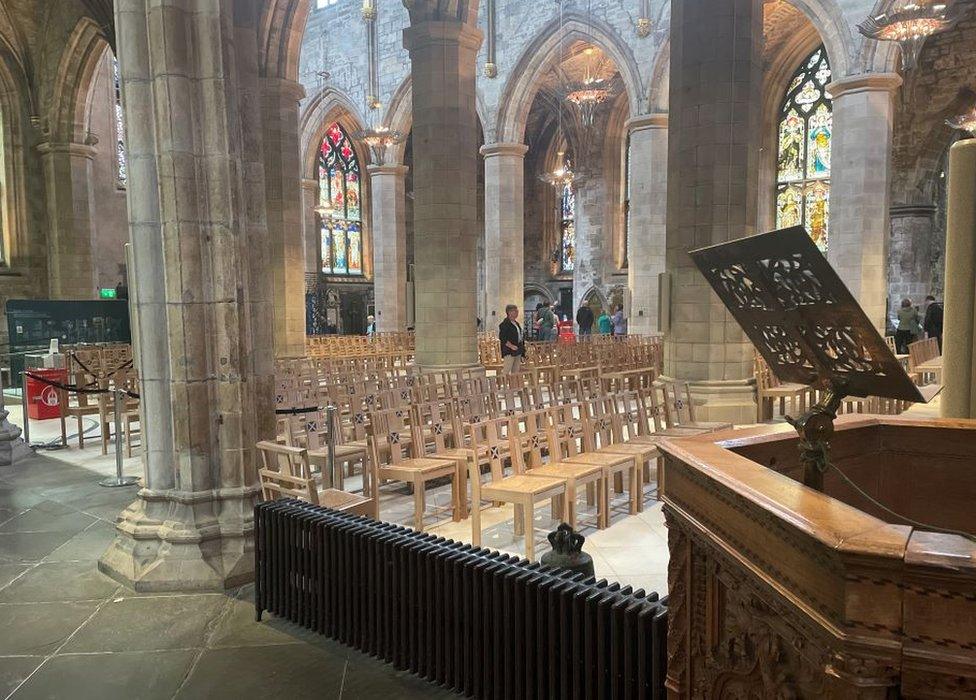
Churches are among buildings involved in the new approach
He told BBC Scotland: "If we receive reports of any fire or signs of fire we will immediately mobilise to those premises.
"False alarms place huge demands on our emergency front-line response. Almost all of these calls from automated fire alarm systems can actually be prevented and are generally caused through lack of maintenance and fumes from cooking.
"What I would encourage duty holders to do is to put in place appropriate procedures and ensure staff are trained to investigate a fire alarm prior to calling the fire and rescue service.
"The biggest benefit we will see is that firefighters will be freed up to respond to real emergencies. The time that we will save by not responding to unwanted fire alarms, we will reinvest into training, so operational staff have appropriate skill sets to be able to deal with real emergencies and we'll invest further time into community and educational programmes."
Call handlers will now have to ask if there is an actual fire or signs of a fire before deploying.
'Seconds count'
Colin Brown, executive council member for the Fire Brigades Union (FBU) in Scotland, fears critical time could be lost.
He said control room firefighters had concerns.
"The changes have been proposed for a number of years. The FBU expressed some grave concerns," he said.
"Firefighters are the professionals in assessing fire risk. Firefighters don't respond to unwanted fire alarm signals, they respond to a fire alarm going off, and only leave knowing it was unwanted.
"The concern that we have is that the responsibility for assessing that risk is now entirely on duty holders, where firefighters are trained to spot signs that duty holders may miss and lead to more developed fires and delays in fire service response. Seconds count."
The Church of Scotland has more than 1,400 properties.
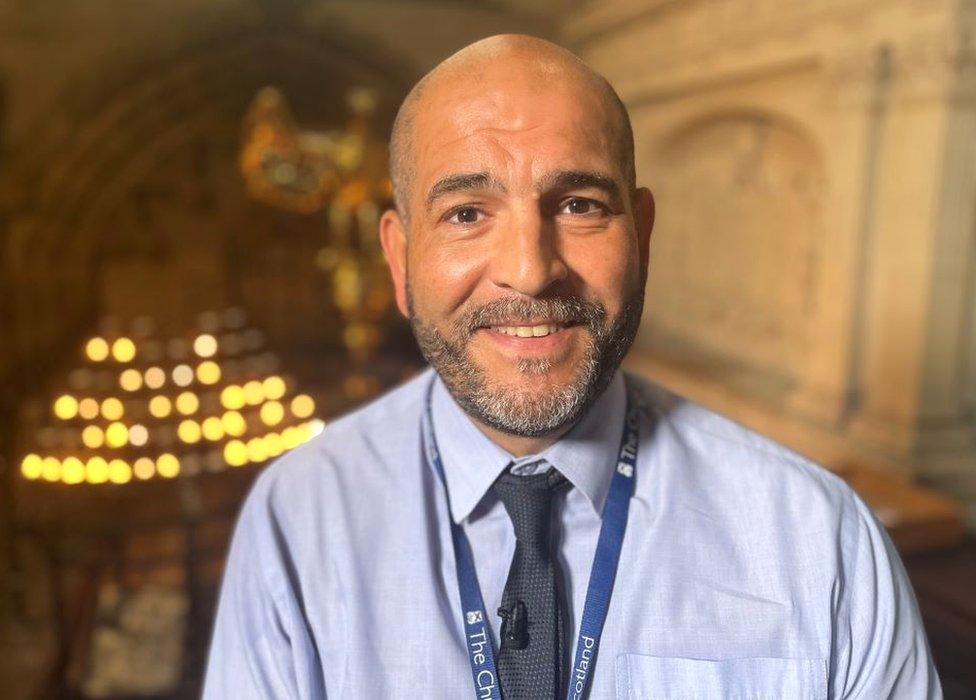
Mo D'souli said some church workers could have to travel far to check for signs of fire
It is concerned about the financial burden the changes might have on improving fire safety systems and the possible increased risk to buildings.
Mo D'souli is the health and safety and compliance manager for the general trustees at the Church of Scotland.
Speaking at St Giles' Cathedral in Edinburgh, he said: "We are concerned about the additional needs for an investigation which may result in our volunteers and staff having to call to buildings out of hours.
"There will be some localised duty holders, we also have some congregations that are isolated or rural where the person may have to travel for 30 to 40 minutes to reach the building.
"I do have some sympathies with the Scottish Fire and Rescue Service, I can understand the reasoning. I think it's going to take a little while for this to bed in."
Businesses will have to adapt too.
Kelly Forrest is a director at Forrest Training in Aberdeen which offers first-aid courses.
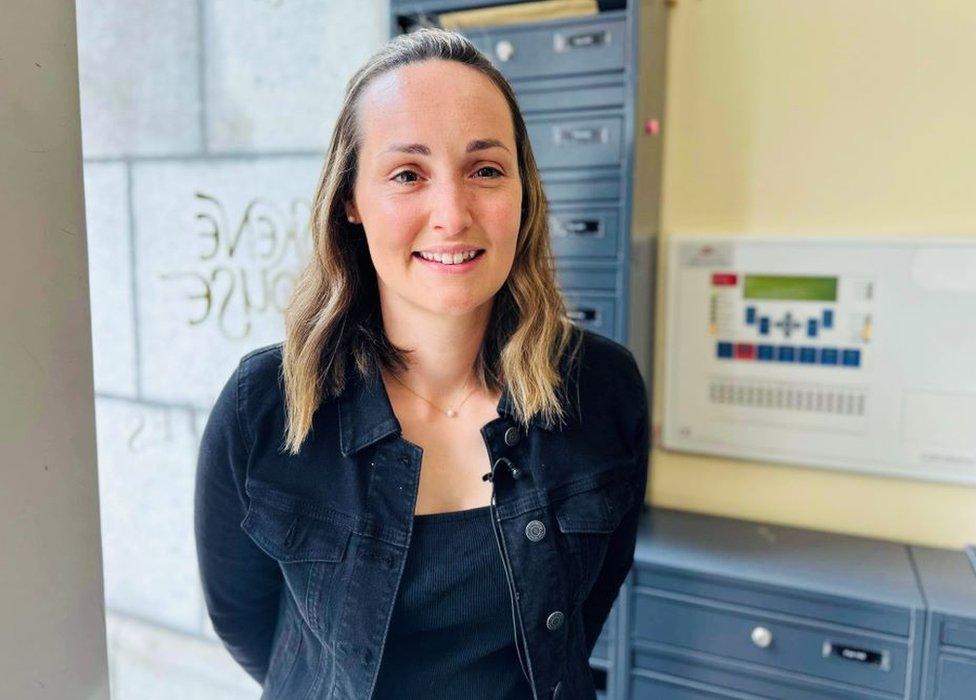
Kelly Forrest said she had not been aware of the changes
"It's something I wasn't aware of," she said.
"We're in a residential area, so there's a high chance a fire could break out in a building adjacent to us or within the same area and how you go about alerting the services without actually having seen the fire is probably a concern for us.
"I suppose there's a risk of a fire becoming more ferocious by the time someone calls the services.
"I can completely understand the reason why this has been implemented. I can imagine false call-outs has a huge impact on the service and how they respond."
She added: "It's the sort of thing that needs to be communicated, maybe radio adverts and making people very aware that it isn't going to be the case anymore.
"Because up until now I wouldn't have known that I needed to put alternative measures in place and as a business I would have been relying wholly on my fire control panel to alert the services."
The SFRS stressed that fire engines would still be mobilised to any alarm activations within the exempt properties such as hospitals and care homes, and it would always respond to any physical report of a fire or signs of one.
- Published10 January 2022
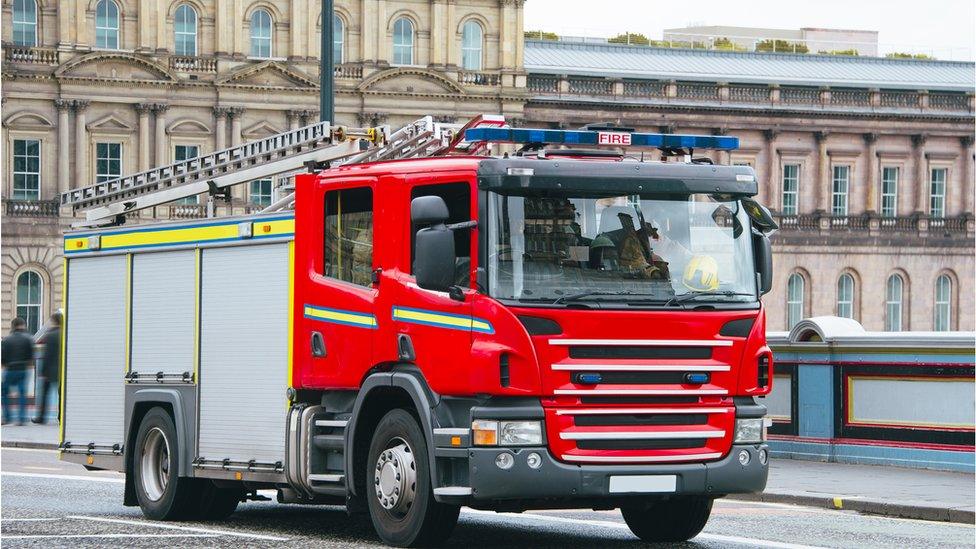
- Published18 October 2016
